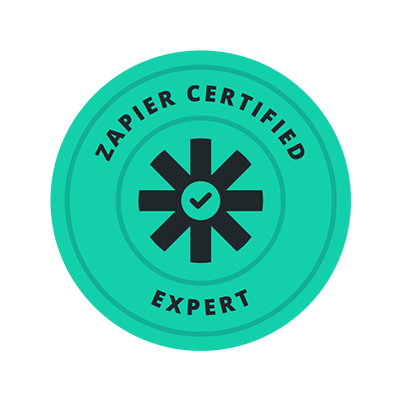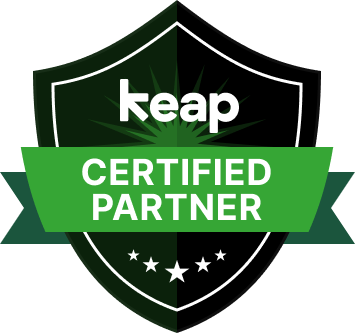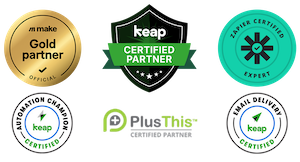What is Make.com, and how does it differ from other no-code/low-code platforms?
Make.com is a no-code/low-code platform that allows users to create custom applications and automate business processes without coding. It stands out from other platforms with its intuitive interface, extensive integration options, and focus on user-friendly design.
What types of applications can I build using Make.com for business automation?
Make.com enables you to build a wide range of applications, including workflow automation tools, data collection apps, customer relationship management (CRM) systems, project management dashboards, and more, tailored to your business needs.
Is Make.com suitable for non-technical users or those without coding experience?
Yes, Make.com is designed for non-technical users and those without coding experience. Its user-friendly interface and visual development tools make it accessible to users of all skill levels.
What are the key features and components of Make.com’s platform?
Make.com offers features like drag-and-drop app builders, customizable templates, workflow automation, database management, reporting and analytics, and seamless integration with external data sources and APIs.
Can I connect Make.com with external data sources and APIs?
Yes, Make.com allows you to connect with external data sources and APIs, enabling you to import and export data, automate processes, and integrate with other systems or services.
How can I get started with building my first application on Make.com?
To start building your first application on Make.com, sign up for an account, explore the platform’s tutorials and documentation and use the drag-and-drop interface to design your app’s structure and logic.
What are the pricing options for Make.com, and do they offer a free trial?
Yes, as a Gold Partner, we can offer a free trial with 10,000 actions. Just click this link to get this special Partner-only bonus! Make.com typically offers various pricing plans, including free trial options. The pricing structure may vary based on factors such as the number of users, storage, and advanced features needed.
Is there a limit to the complexity of applications I can create with Make.com?
While Make.com is suitable for a wide range of applications, the complexity of your projects may depend on your plan and expertise. Make.com provides flexibility to accommodate simple to highly complex applications.
What level of support and resources are available for Make.com users?
Make.com offers user support, documentation, video tutorials, and a community forum to assist users in learning the platform, troubleshooting issues, and sharing experiences.
Can I export or migrate my applications built on Make.com to other platforms?
Yes, Make.com provides options to export and migrate your applications, ensuring data portability and flexibility in case you need to transition to other platforms.
Are there any security considerations when using Make.com for business automation?
Make.com takes security seriously and employs measures such as data encryption, access controls, and regular security audits to protect your data and applications. Users are also encouraged to follow best security practices.
What are some successful case studies or real-world examples of businesses using Make.com?
Make.com showcases case studies and examples of businesses across various industries successfully using the platform for automation, allowing you to gain insights into its practical applications.
Can I collaborate with a team on application development using Make.com?
Yes, Make.com supports collaboration by allowing multiple users to work on the same application simultaneously, making it convenient for teams to collaborate on development projects.
What are some best practices for maintaining and scaling applications built with Make.com?
Best practices for maintaining and scaling applications on Make.com include regularly updating your apps, optimizing workflows, monitoring performance, and staying informed about new features and integrations to enhance your automation capabilities.
What is Keap, and how can it benefit my business’s automation needs?
Keap is a comprehensive CRM and marketing automation software designed to help businesses manage customer relationships, automate marketing campaigns, and streamline operations. It enables you to create personalized customer journeys, automate repetitive tasks, and nurture leads effectively.
Is Keap suitable for small businesses, mid-sized companies, and large enterprises?
Keap is primarily designed for small and medium-sized businesses (SMBs) that aim to enhance their customer relationship management and marketing automation capabilities. However, larger enterprises can also utilize it for specific use cases.
What are the core features of Keap’s CRM and automation software?
Keap offers features such as contact management, lead scoring, email marketing, automation workflows, appointment scheduling, e-commerce integration, reporting, and analytics. It provides a holistic solution for managing customer interactions.
How can I get started with setting up Keap for my business?
To get started with Keap, sign up for an account, import your contacts, set up automation sequences, and create email marketing campaigns. Keap provides tutorials and customer support to assist you during the setup process.
Can Keap integrate with other software applications and platforms?
Yes, Keap offers various integrations with popular third-party applications, including payment gateways, e-commerce platforms, lead generation tools, and more. These integrations help streamline your business processes and connect Keap with your existing software stack.
Are there different pricing plans available for Keap, and what do they include?
Keap offers different pricing tiers based on your business needs. These plans typically include features such as contact management, automation, email marketing, and more. Pricing may vary depending on the number of contacts and additional features required.
What level of customer support and training is provided by Keap?
Keap provides customer support through email, chat, and phone. They also offer training resources, webinars, and a knowledge base to help users get the most out of the software.
Can I migrate data from my existing CRM or automation software to Keap?
Yes, Keap provides data import tools and services to assist in migrating your contacts and data from other CRM or marketing automation systems, ensuring a smooth transition to Keap.
What are the security measures in place to protect my data in Keap?
Keap employs robust security measures, including encryption, access controls, and data backups, to safeguard your information. They are committed to protecting your data’s confidentiality and integrity.
Are there any limitations or restrictions on the number of contacts or automation sequences I can have?
The limitations on the number of contacts and automation sequences depend on your selected pricing plan. Keap offers different plans with varying contact limits, so you can choose the one that suits your business size and needs.
How can I troubleshoot issues or optimize my automation workflows in Keap?
Keap provides a support team to assist with troubleshooting. Additionally, they offer resources and guides to help you optimize your automation workflows, improve email deliverability, and maximize your marketing efforts.
Can I create customized reports and analytics in Keap to track performance?
Yes, Keap offers reporting and analytics tools that allow you to track the performance of your marketing campaigns, automation sequences, and sales pipelines. You can generate custom reports to gain insights into your business’s effectiveness.
Are there any notable success stories or case studies of businesses using Keap for automation?
Yes, Keap showcases success stories and case studies on their website, highlighting how businesses have benefited from their CRM and automation solutions. These examples can provide insights into real-world applications.
What are some best practices for maximizing the effectiveness of Keap in business automation?
To maximize Keap’s effectiveness, focus on segmenting your contacts, personalizing your communications, creating automated workflows, and continually testing and optimizing your marketing strategies. Keap offers training and resources to help you implement these best practices successfully.
What is Zapier, and how does it work for business automation?
Zapier is an automation platform that connects different web applications to automate workflows. It works by creating “Zaps,” which are automated tasks that trigger actions in one app based on events in another app, streamlining business processes.
Is Zapier suitable for small businesses, startups, and large enterprises?
Zapier is versatile and caters to businesses of all sizes, from small startups to large enterprises. Its scalability and extensive app integrations make it suitable for a wide range of needs.
What are Zaps and how do I create them?
Zaps are automation workflows that connect two or more apps. To create a Zap, you define a trigger event in one app and specify one or more actions to be taken in another app when the trigger event occurs.
What are the most common use cases for Zapier in business automation?
Common use cases for Zapier include automating lead capture, streamlining data entry, integrating marketing tools, sending notifications, and syncing data between apps, among others.
Can I integrate Zapier with my existing software applications?
Yes, Zapier offers integrations with thousands of popular software applications, allowing you to connect and automate processes within your existing toolset.
What are the pricing plans for Zapier, and is there a free version available?
Zapier offers a range of pricing plans, including a free plan with limited functionality. Paid plans provide additional features and higher usage limits. Pricing may vary based on your needs.
How secure is my data when using Zapier for automation?
Zapier takes data security seriously and employs encryption and security measures to protect your data during transit and storage. It also ensures that data access is controlled and monitored.
Are there any limitations or restrictions on the number of Zaps I can create?
The number of Zaps you can create depends on your Zapier subscription plan. Paid plans typically offer more Zaps and advanced features, while the free plan has limitations.
Can I automate tasks that involve complex logic or require custom code?
While Zapier primarily focuses on no-code automation, you can create more complex workflows using tools like custom code actions and multi-step Zaps for intricate automation needs.
What kind of support and documentation is available for Zapier users?
Zapier offers extensive documentation, guides, video tutorials, and a community forum. Paid plans include access to priority support for quicker assistance.
How can I troubleshoot issues with my Zaps?
Zapier provides a built-in task history and error logs, which can help you identify and troubleshoot issues. Additionally, the support team and community can assist with problem-solving.
What are some alternatives to Zapier for no-code automation?
Alternatives to Zapier include Integromat, Microsoft Power Automate, and Automate.io, among others. Each platform offers unique features and capabilities, so you can choose the one that best suits your needs.
Can I automate processes that involve email marketing and CRM platforms?
Yes, Zapier supports integration with email marketing platforms like Mailchimp and CRM systems like Salesforce, allowing you to automate various marketing and customer relationship management tasks.
Are there any industry-specific use cases for Zapier?
Zapier can be used across various industries, from e-commerce and healthcare to education and finance. Specific use cases may vary, but it is adaptable to virtually any industry.
What are some best practices for optimizing and maintaining Zaps over time?
Best practices include regularly reviewing and testing your Zaps, using filters and delays to control automation flow, documenting your workflows, and staying informed about app updates and changes that may affect your Zaps.




